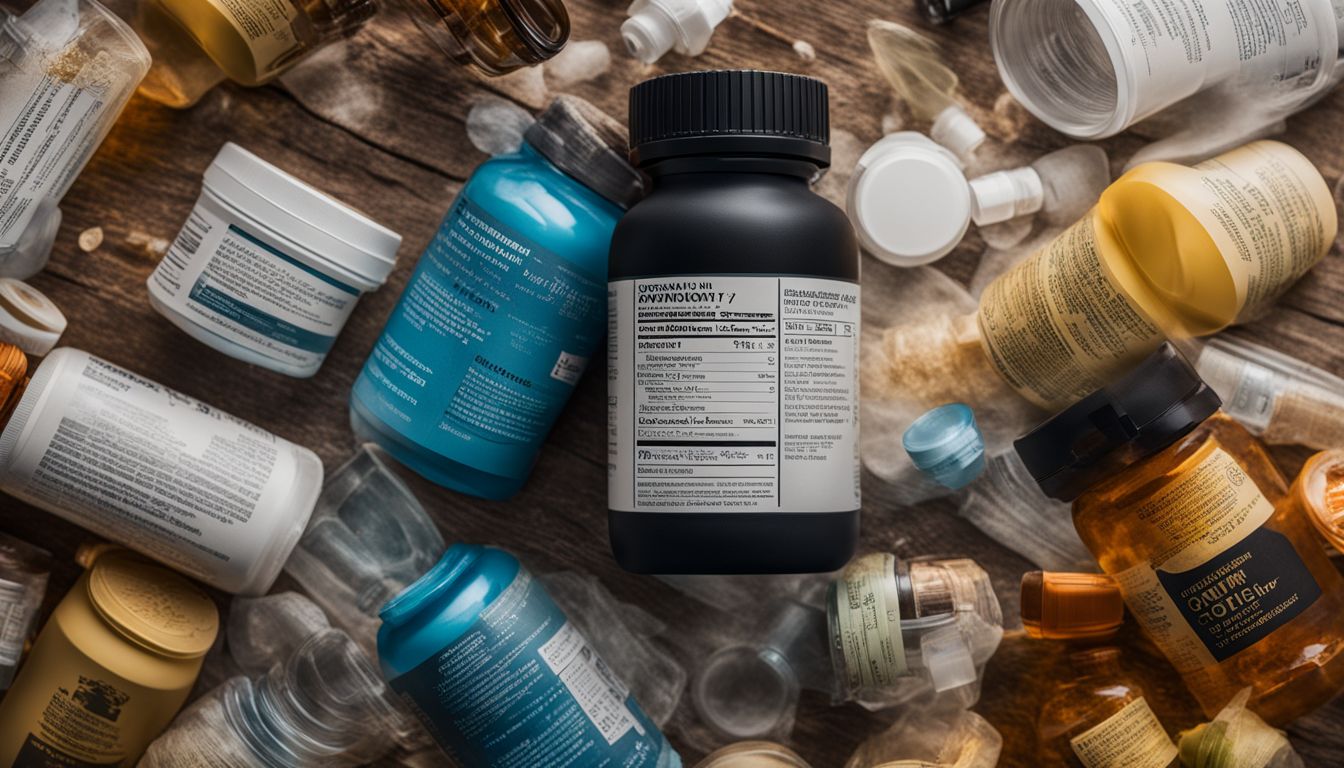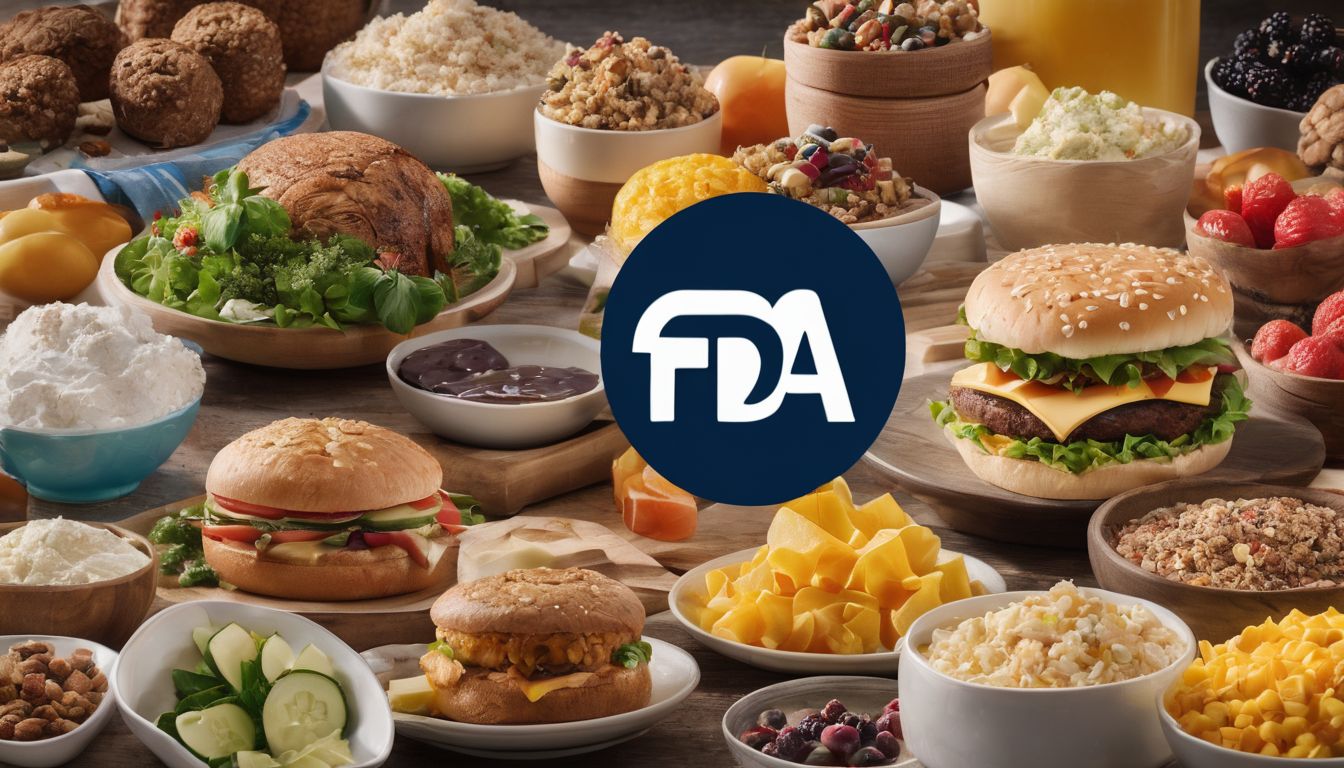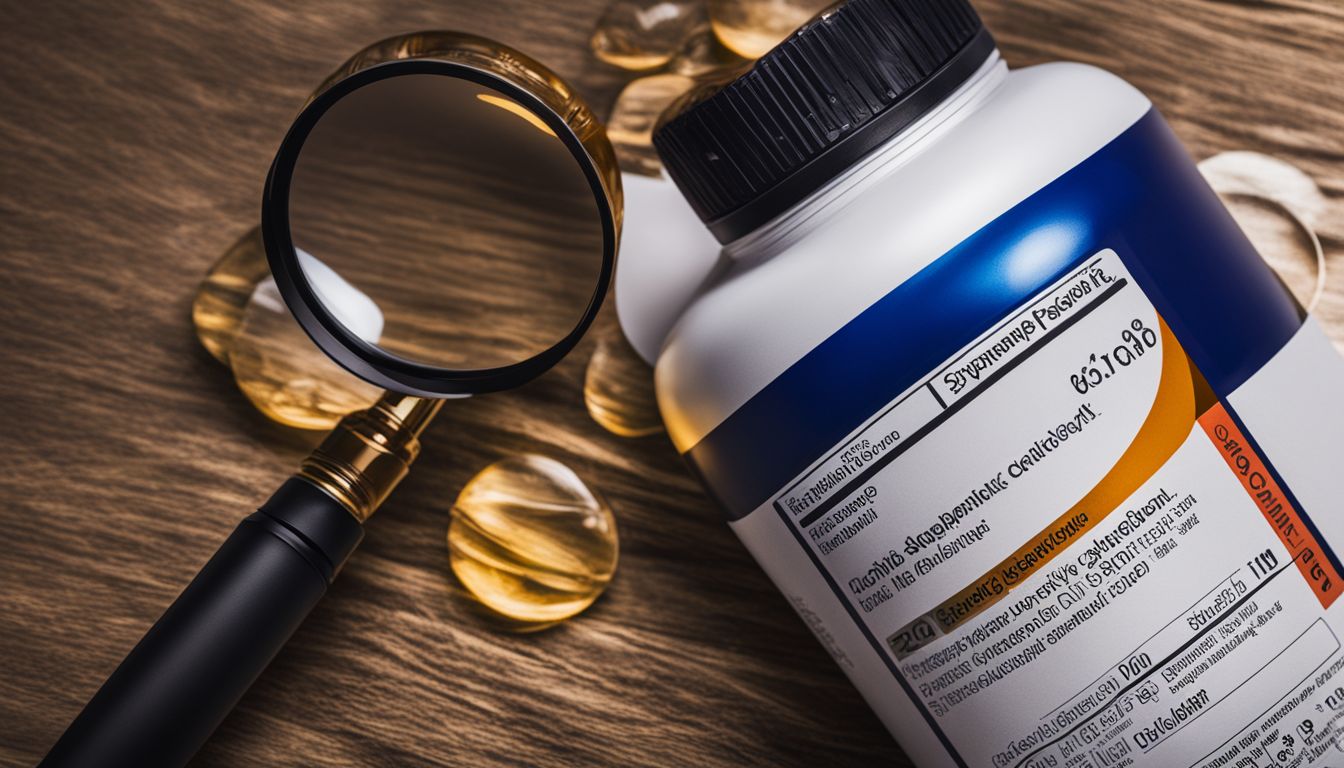Multivitamins Are Not Regulated By The FDA: True Or False?
Are you confused about whether multivitamins are regulated by the FDA or not? The fact is, these dietary supplements fall under a different set of regulations than conventional foods and drugs.
In this blog post, we will demystify the FDA’s role in regulating multivitamins and other similar supplements. Let’s dive into it to uncover what truth lies behind this common query!
Key Takeaways
- Multivitamins and other dietary supplements are not approved by the FDA before they are sold.
- The FDA regulates the manufacturing practices and labeling requirements of dietary supplements to ensure safety and quality.
- It is important for consumers to be cautious when using dietary supplements, consult healthcare professionals, read labels carefully, research manufacturers, and report any adverse events to the FDA.
FDA’s Role in Regulating Dietary Supplements
The FDA does not approve dietary supplements, but it plays a regulatory role in overseeing manufacturing practices and labeling requirements.
FDA does not approve dietary supplements
The FDA does not give a thumbs up to dietary supplements before they hit store shelves. This includes multivitamins and other health aids. The agency treats them like food, not drugs.
They can’t say if the product is safe or if it works well. That’s different from how the FDA watches over medicine. Drug makers need to show that their product is safe and effective before selling it.
But with supplements, this rule doesn’t apply. So, it’s important for you as a buyer to be careful when buying these products.
FDA’s role in regulating manufacturing practices and labeling
The FDA plays a role in regulating the manufacturing practices and labeling of dietary supplements, including multivitamins. They have guidelines in place to ensure that these products are manufactured safely and meet certain quality standards.
This includes regulations on good manufacturing practices (GMPs) which cover things like equipment maintenance, cleanliness, and testing procedures. The FDA also requires accurate labeling of dietary supplements, including listing all ingredients and their amounts.
These regulations aim to protect consumers by ensuring that they know what they are buying and that the product has been manufactured properly.
FDA’s Oversight Responsibility for Dietary Supplements
The FDA is responsible for ensuring the safety and quality of dietary supplements, monitoring adverse events and product recalls.
Ensuring safety and quality of dietary supplements
The FDA plays a role in ensuring the safety and quality of dietary supplements. However, it’s important to note that they do not approve these supplements before they are marketed.
Instead, the FDA regulates manufacturing practices and labeling requirements for dietary supplements. They also monitor adverse events and product recalls to address any safety concerns.
It’s crucial for consumers to be cautious when using dietary supplements and consult healthcare professionals for advice on their safety and effectiveness. Remember, just because a supplement is on the market does not guarantee its efficacy or safety.
Monitoring adverse events and product recalls
The FDA is responsible for monitoring adverse events and product recalls related to dietary supplements, including multivitamins. While the FDA does not approve these supplements before they are marketed, it does have a system in place to track any potential safety concerns.
This includes collecting data on adverse events reported by consumers or healthcare professionals and investigating any potential issues with product quality or contamination. If necessary, the FDA can take action to remove unsafe products from the market and issue recalls.
It’s important for consumers to stay informed about any recalls or safety alerts issued by the FDA and report any adverse events they experience while using dietary supplements.
Misconceptions About FDA Approval
Many people mistakenly believe that the FDA’s approval process for drugs and medical devices is the same as their regulation of dietary supplements.
FDA’s approval process for drugs and medical devices
The FDA has a thorough approval process for drugs and medical devices before they can be marketed to the public. This process involves rigorous testing and evaluation to ensure their safety and effectiveness.
The FDA reviews data from clinical trials, studies, and other scientific evidence provided by the manufacturers. They assess the benefits of the product compared to any potential risks or side effects.
Once a drug or medical device is approved, it means that the FDA has determined that its benefits outweigh its risks for its intended use. This approval process helps protect consumers’ health by ensuring that drugs and medical devices on the market are safe and effective.
Differences between FDA approval and FDA regulation
The FDA has different roles when it comes to approval and regulation. When FDA approves something, like drugs or medical devices, it means they have reviewed scientific evidence to ensure safety and effectiveness before those products can be sold.
However, the FDA does not approve dietary supplements, including multivitamins. Instead, the FDA regulates dietary supplements as food. This means they focus on things like manufacturing practices and labeling requirements to make sure that the products are safe and accurately labeled.
So while drugs go through a rigorous approval process by the FDA, dietary supplements do not undergo this same level of scrutiny before they hit store shelves.
It’s important to remember that just because a dietary supplement is on the market doesn’t mean it’s been approved by the FDA for its claims or effectiveness. The responsibility falls mainly on the manufacturers to ensure their products are safe and meet certain standards set by law.
The Importance of Consumer Awareness and Education
Consumers need to understand the limitations of dietary supplement regulation, be cautious and informed when making choices, and report any adverse events to the FDA.
Understanding the limitations of dietary supplement regulation
The FDA’s role in regulating dietary supplements is limited. Unlike drugs and medical devices, dietary supplements do not undergo a premarket approval process by the FDA for safety and effectiveness.
The FDA does not determine whether a dietary supplement is effective before it is marketed. Additionally, the FDA may not be aware of new products entering the market, as manufacturers are not required to notify them beforehand.
Therefore, it is important for consumers to be cautious when using dietary supplements and consult healthcare professionals for advice on their use.
Being a cautious and informed consumer
- Read and understand the label: Carefully review the information on the dietary supplement label, including the ingredients, dosage instructions, and any warnings or precautions.
- Research the manufacturer: Look into the reputation and history of the company that produces the dietary supplement. Check if they have a good track record for quality and safety.
- Consult healthcare professionals: Talk to your doctor or pharmacist before starting any new dietary supplement. They can provide guidance based on your individual health needs and any medications you may be taking.
- Be wary of exaggerated claims: Be skeptical of supplements that promise unrealistic results or quick fixes. Remember that supplements are not a substitute for a healthy diet and lifestyle.
- Report adverse events: If you experience any negative effects after taking a dietary supplement, report it to the FDA through their MedWatch program. This can help identify potential safety concerns.
- Stay informed: Keep up-to-date with current research and news about dietary supplements. Be aware of any recalls or safety alerts issued by regulatory agencies like the FDA.
Remember to always prioritize your health and make informed decisions when considering dietary supplements.
Reporting adverse events to the FDA
If you experience any negative effects or problems after taking a dietary supplement, it is important to report these adverse events to the FDA. This helps the FDA monitor and identify potential safety concerns with dietary supplements.
By reporting adverse events, you can contribute to the overall safety of these products and help protect others from potential harm. Remember, your feedback and input are valuable in ensuring that dietary supplements are safe and reliable for everyone.
Conclusion
In conclusion, it is true that multivitamins are not regulated by the FDA. The FDA’s role in regulating dietary supplements is limited to ensuring manufacturing practices and labeling requirements.
It’s important for consumers to be aware of this and take caution when using dietary supplements, seeking advice from healthcare professionals.
FAQs
1. Are multivitamins regulated by the FDA?
False. Multivitamins are not regulated by the FDA in the same way as prescription drugs or over-the-counter medications.
2. Is it safe to take unregulated multivitamins?
Taking unregulated multivitamins can be safe, but it’s important to choose reputable brands and consult with a healthcare professional before starting any new supplement regimen.
3. What does it mean for multivitamins to be unregulated?
When multivitamins are unregulated, it means they do not undergo the same level of testing and approval process as pharmaceutical drugs, which includes rigorous clinical trials and safety evaluations.
4. Should I be concerned about taking unregulated multivitamins?
While there is generally no need for concern when taking unregulated multivitamins from trusted sources, it’s always wise to discuss any concerns or questions with a healthcare professional who can provide personalized advice based on your specific needs and medical history.



















